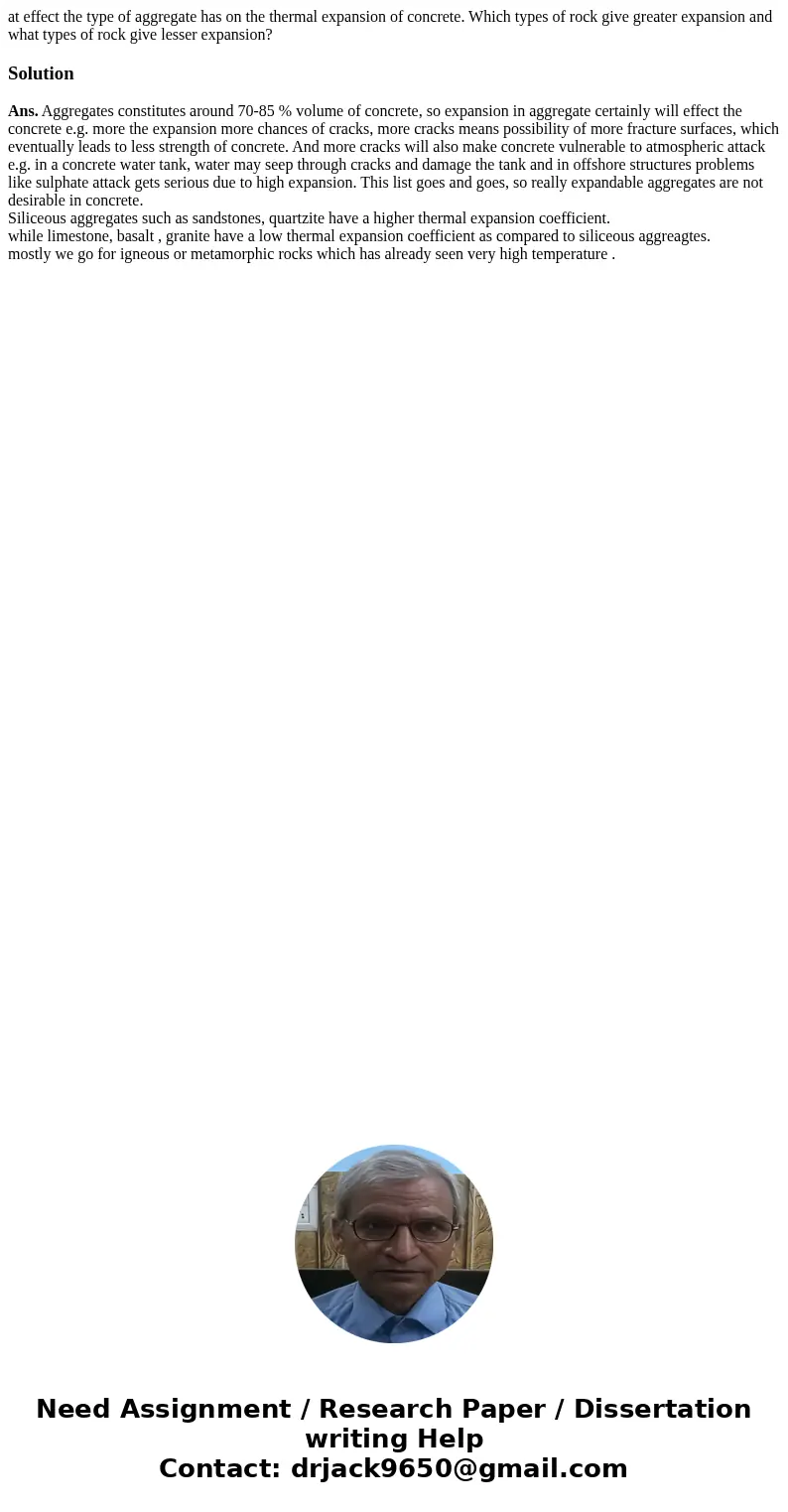at effect the type of aggregate has on the thermal expansion
Solution
Ans. Aggregates constitutes around 70-85 % volume of concrete, so expansion in aggregate certainly will effect the concrete e.g. more the expansion more chances of cracks, more cracks means possibility of more fracture surfaces, which eventually leads to less strength of concrete. And more cracks will also make concrete vulnerable to atmospheric attack e.g. in a concrete water tank, water may seep through cracks and damage the tank and in offshore structures problems like sulphate attack gets serious due to high expansion. This list goes and goes, so really expandable aggregates are not desirable in concrete.
Siliceous aggregates such as sandstones, quartzite have a higher thermal expansion coefficient.
while limestone, basalt , granite have a low thermal expansion coefficient as compared to siliceous aggreagtes.
mostly we go for igneous or metamorphic rocks which has already seen very high temperature .

 Homework Sourse
Homework Sourse